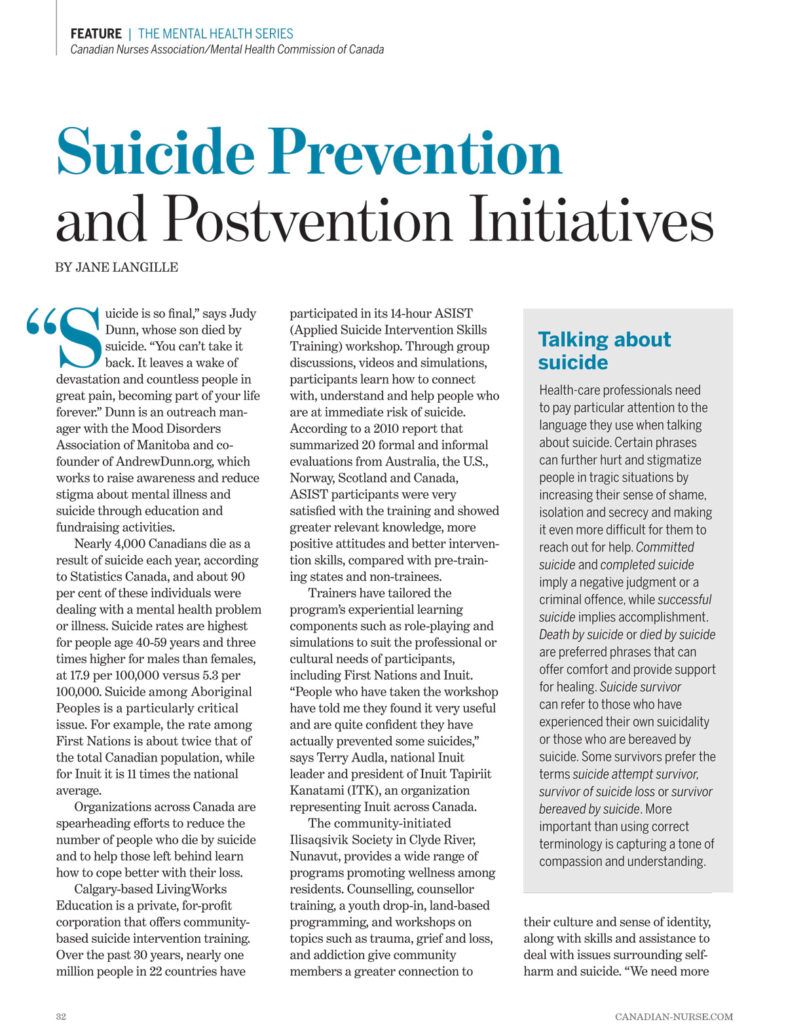This is my second feature in a series about mental health for Canadian Nurse in collaboration with the Mental Health Commission of Canada.
Suicide is a devastating tragedy — not only for those who take their own lives — but also for the family and friends left behind.
Around the time this story was published, I learned that a friend of an extended family member died by suicide. I didn’t know the family well, but I do remember him having a good time playing catch with his Dad many evenings while he was growing up.
It’s difficult to fathom why some people take their lives, and harder still to learn that stigma about mental illness prevents so many from reaching out to seek help before it’s too late. For the young man who died and his family, their tragedy was compounded by an additional layer of stigma imposed by religion and culture.
Those close to the family knew the truth, but the family would not talk about it. According to their beliefs, suicide is the worst thing someone can do. An admission of suicide would have meant the deceased young man would not have received ceremonial blessings and it would have changed where he was buried.
I sincerely hope the family’s religious beliefs and cultural traditions do not deny them the opportunity to seek help to deal with the aftermath of this tragedy. Effective postvention care for bereaved family members views trauma as an injury, not an illness or a weakness. Effective care does not impose blame or guilt or ask “what’s wrong with you,” but shifts the perspective to “what’s happened to you” to help people cope with the trauma.
Experts say that suicide is preventable and that there are many treatments available that can help people in crisis. For example, the 14-hour ASIST (Applied Suicide Intervention Skills Training) workshop teaches participants how to connect with, understand and help people who are at immediate risk of suicide. ASIST is a program offered in communities across Canada by Calgary-based LivingWorks Education.


